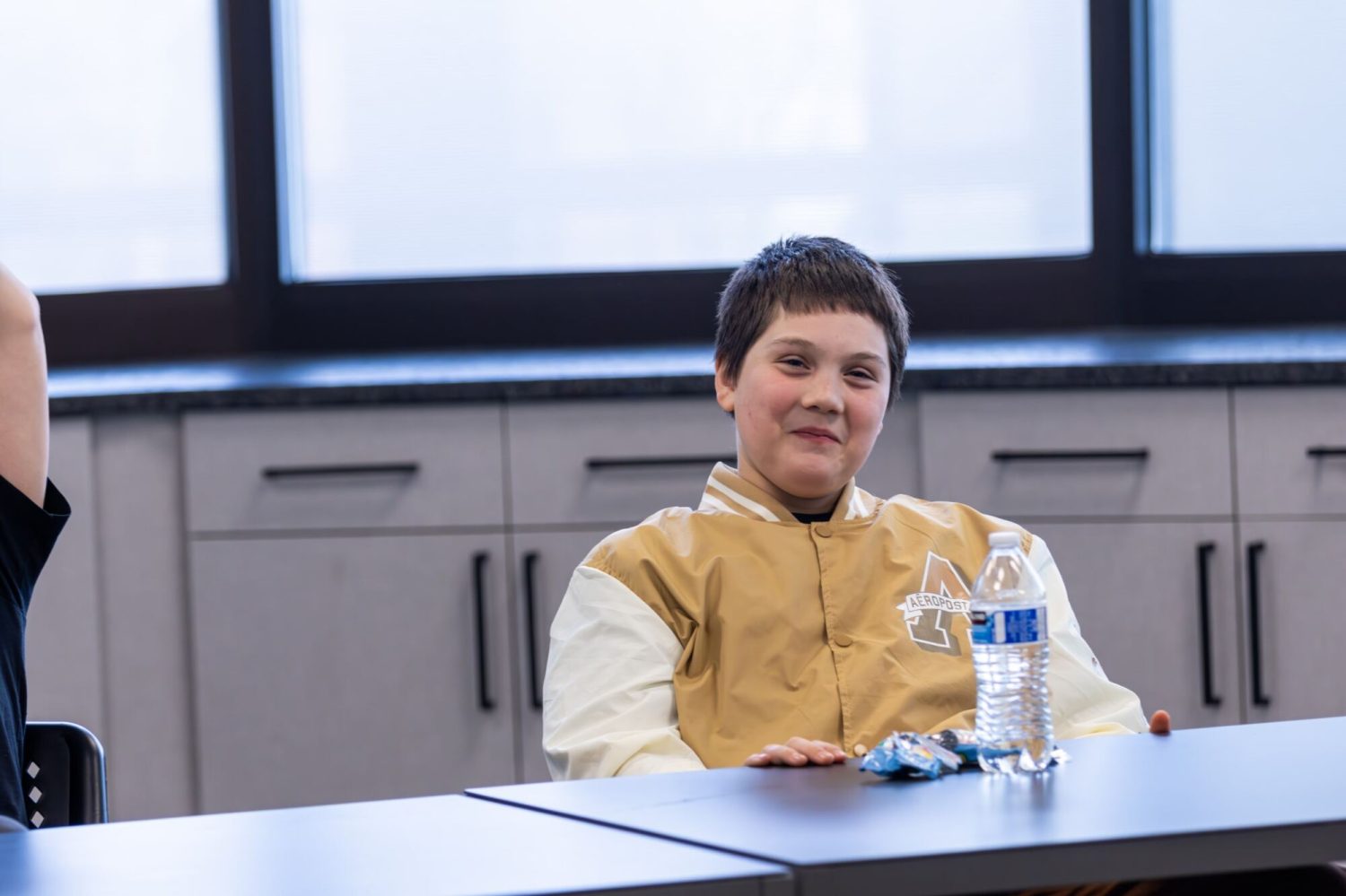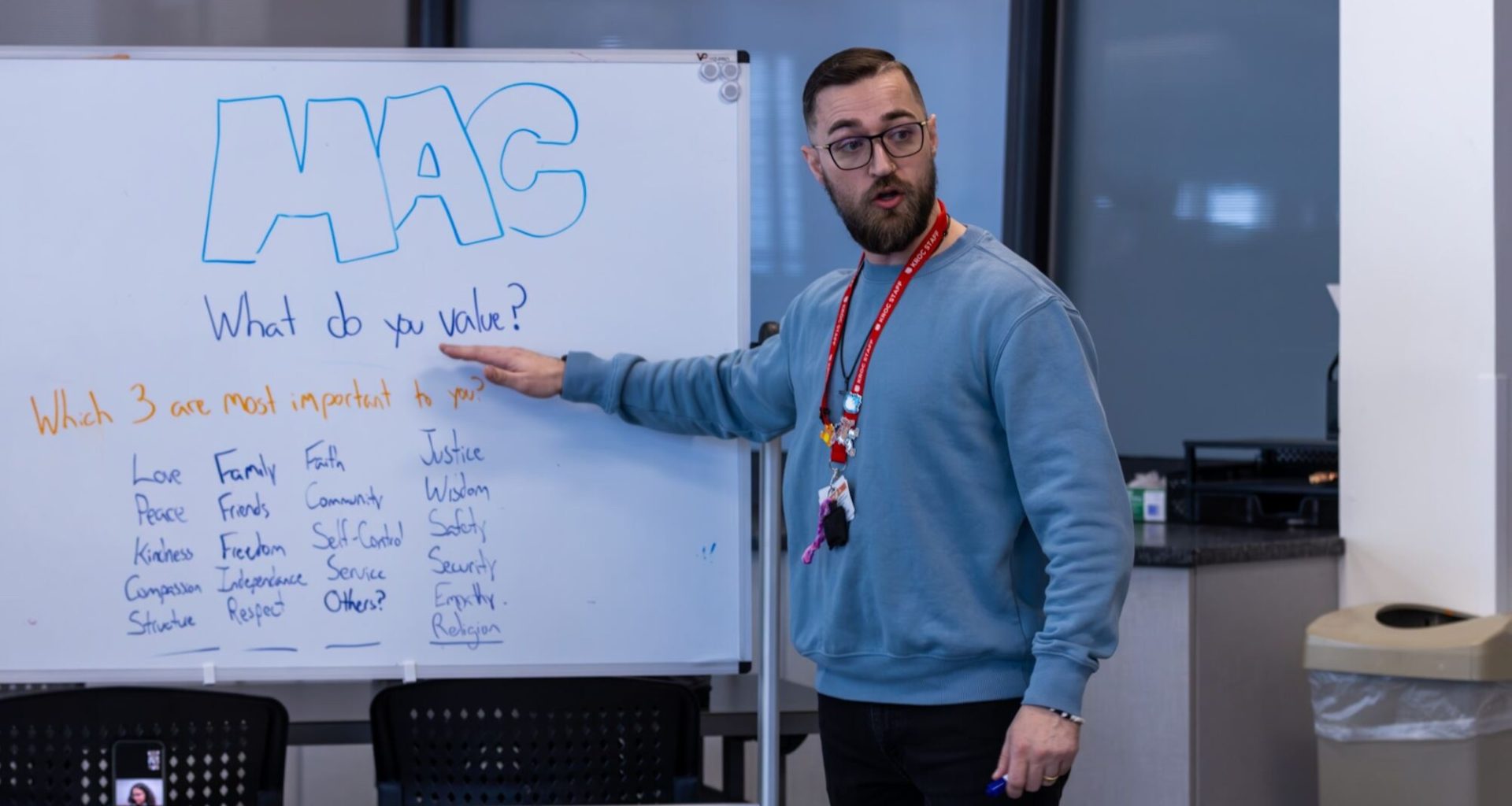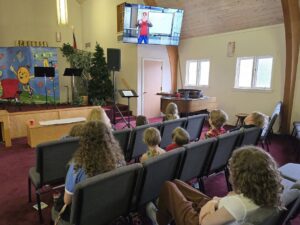The Salvation Army’s efforts and reach position it as a source of care, guidance and support for youth, embodying a commitment to addressing diverse needs and overall well-being.
Isaiah Fuentes, a middle school student, raised his hand in a room at The Salvation Army Ray and Joan Kroc Corps Community Center in Coeur d’Alene, Idaho, to discuss the events of his day. He recalled the joy of sharing lunch with his friends as a high point but acknowledged feeling frustrated when he later disagreed with a teacher.
Seated in a room of nine of his peers, Fuentes is a part of something important: an after-school Mental Health Awareness Club (MAC) for middle schoolers. Hosted by licensed mental health counselor and Coeur d’Alene Kroc Center Youth and Family Support Specialist, Tyson Durbin, the club provides a supportive environment for preteens to navigate emotions and feelings.
Every Wednesday evening, the group starts by sharing the ups and downs of the day while Durbin walks them through any emotions or uneasy feelings.
Afterward, the club explores various topics such as stress coping, mindset management, self-awareness and identity development. Durbin develops the daily lessons and selects the discussion topics. He encourages students to take the lead in conversation and refers to it as a peer-led safe haven.
“Students are invited to dive into the world of mental health literacy and skill building through conversation and play,” he said.
Following discussions, students take a break to unwind in the gym or game room before participating in the concluding conversations. According to Durbin, getting active allows students to release excess emotional and social energy to help them process feelings.
“All behaviors are messages.”
Tyson Durbin, Coeur d’Alene Kroc Center Youth and Family Support Specialist
After the initial weeks of the program in 2023, Durbin said the group of 10 advocated for it to continue long-term, emphasizing the current need to support youth mental health.
Between 2009 and 2019, persistent feelings of sadness and hopelessness, along with suicidal thoughts and behaviors among young people, increased by 40 percent, according to the Centers for Disease Control and Prevention (CDC) Youth Risk Behavior Surveillance System.
To draw national attention to the concerns, the U.S. Surgeon General issued an advisory in 2021 calling for public recognition and support for youth mental health.
“Ensuring healthy children and families will take an all-of-society effort, including policy, institutional, and individual changes in how we view and prioritize mental health,” U.S. Surgeon General Vivek Hallegere Murthy said in the advisory.
According to Durbin, that advisory sparked the Coeur d’Alene Kroc Center’s idea to implement an additional focus on community and youth mental health, resulting in his hiring in 2023 and the formation of the Mental Health Awareness Club.
And the club soon doubled in size.
“Mental health and suicide continue to be ongoing crises in Idaho,” Durbin said, noting that for the past five years, suicide has ranked as one of the leading causes of death among youth in the state.
According to a CDC report on Youth Mental Health, providing students with the space to explore mental health challenges at their own pace is the best approach to introducing youth to complex topics and diminishing concerns of suicide and failing mental health.
“Children are the leaders of the next generation,” Durbin said. “They carry an important message for us adults—to understand and support them.”

Durbin emphasized that when safety, trust and reliability are present, students find an environment that fosters improved mental well-being, which sets the foundation for thriving mental health.
He has seen progress firsthand. After teaching a lesson on stress-coping tools one week, he received feedback from a student who applied his advice of “stopping to think and breathe” to manage stress following a low grade on a test.
“I help to introduce and instill coping tools that students can utilize when they experience anxiety, anger or stress,” Durbin said.
His expertise as a trained healthcare professional helps him recognize signs of mental health struggles—things like lowering grades, anxiety or withdrawing from peers—and employ the best approaches to address them.
“All behaviors are messages,” Durbin said. “I just try to understand the message they’re sending to develop strategies of what’s next to help.”
As the need for greater support for youth mental health continues to be recognized across the U.S., The Salvation Army’s 400 after-school programs across the nation position the organization as a community hub for addressing the well-being of youth.
These safe spaces offer youth a place to go, unpack and feel connected, Durbin said.
“It’s important to look at the whole picture,” Durbin said. “The Salvation Army can support the mental health of individuals because we have a foundation to address the mind, body and spirit.”
Do Good:
- Are you best suited to Do Good in disaster relief? Mental health? Social justice? Take our What’s Your Cause quiz and discover where you can make the biggest impact today.












